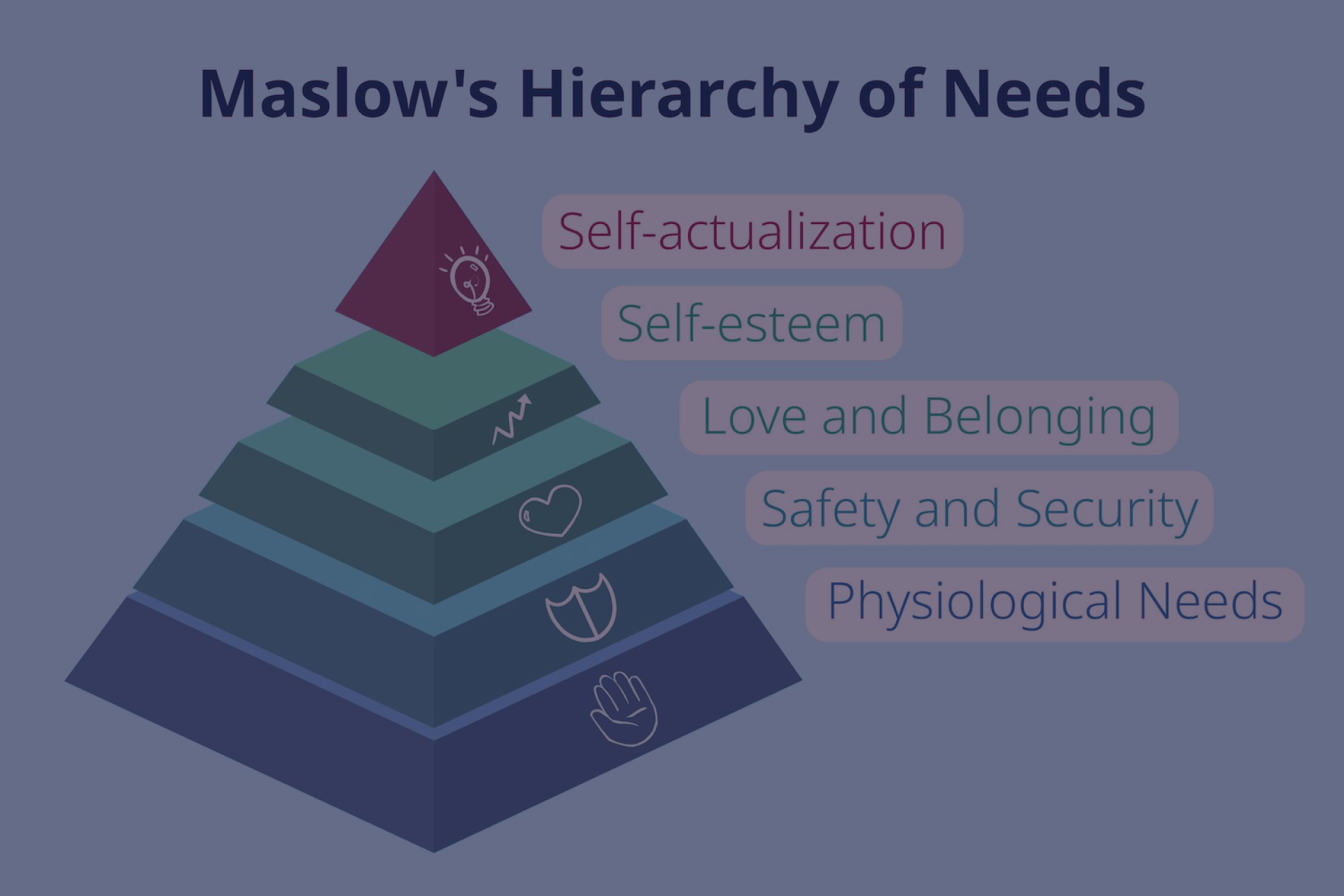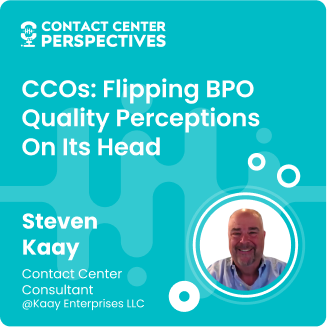Outsourcing SaaS Customer Support: 101 Guideline

If your SaaS business has to deal with customers, a contact center is essential for communication with them. However, finding and training dedicated agents to manage customer support takes time and effort. That is when an outsource contact center comes into your business strategy.
An outsourced contact center is a great solution for SaaS companies because it is cost-efficient and can take the responsibility of client management off your shoulders. It saves time and resources for the issue resolution and staff management. Outsourcing customer support is perfect for SaaS businesses looking for ways to increase sales through impeccable service from experienced agents. Therefore, companies can focus on primary business goals & strategies while the customer support area is under control.
Keep reading to find out the challenges and peculiarities of outsourcing SaaS customer service as well as core KPIs to measure its performance and successful case studies of outsourcing customer support.

What Challenges SaaS Suppliers Face In Communication With Customers
Time-consuming issue resolution
Issue resolution is the average time it takes for a registered ticket to be resolved successfully. Unfortunately, SaaS customer support often receives tech issues that require deep research of the problem. Agents can’t help during the first contact resolution, so it can take a few days or even a couple of weeks for them to process the inquiry and get back to the customer. B2B clients’ businesses depend on the operation of the Saas products. Thus, the client’s company may lose potential revenue and even incur losses due to downtime of customer support prompting him to change SaaS provider.
According to the research of Superoffice, the average response time of customer service in SaaS companies is 12 hours whereas 46% of customers expect to get the reply within 4 hours. Outsourcing customer service centers usually provides clients with 15 minutes of response time increasing customer satisfaction significantly.
Agents with compulsory tech background
An agent needs to understand the tech language and SaaS product peculiarities to communicate with the customer about software bugs and help solve tech issues. When SaaS suppliers lack techies in their customer support teams, the client satisfaction decreases as it is challenging to process the request without mistakes and explain the issue to developers.
Additionally, the agent’s work is quite demanding and the recruiting process usually takes a lot of time. It is difficult to find the agents with a technical background and even harder to make them stay because of peculiarities and stress levels during work.
Complicated system of customer support team
SaaS contact center often assists B2B and B2C segment customers simultaneously making it hard to examine every issue in detail. The customer support team usually has 2 levels of support. The first one covers simple tasks like collecting data and helping to set up the software while the second helps with more complicated issues, requiring improvements SaaS products, e.g. bugs elimination or fixing the code.
Compulsory 24/7 support
SaaS suppliers have customers worldwide, so they have to provide 24/7 communication to satisfy customer needs. Thus, it requires hiring a large in-house team because a few agents can’t cope with the burden of round-the-clock inquiries. The companies often ask the agents to work shifts or create after-hours notification systems to leave salary on the same level, prompting employees to quit the job. Thus, the companies try to find alternative solutions such as outsourcing or mixed teams with separate day and night shifts.
How Outsourcing SaaS Customer Support Can Help
SaaS customer support outsourcing is a key to the success of SaaS support best practices. High ROI, wide usage of omnichannel opportunities, and full coverage 24/7 are among the main ones.
An outsourced contact center is a great solution for SaaS companies that want to cut time for issue resolution and progress without spending significant investment on staff management. It is also suitable for businesses looking for ways to increase sales through faultless customer support from experienced agents. Thus, using outsourced contact center services, SaaS companies can focus on core business processes & goals while the partner provider controls the customer support area.
What Challenges SaaS Suppliers Face In Communication With Customers
Time-consuming issue resolution
Issue resolution is the average time it takes for a registered ticket to be resolved successfully. Unfortunately, SaaS customer support often receives tech issues that require deep research of the problem. Agents can’t help during the first contact resolution, so it can take a few days or even a couple of weeks for them to process the inquiry and get back to the customer. B2B clients’ businesses depend on the operation of the Saas products. Thus, the client’s company may lose potential revenue and even incur losses due to downtime of customer support prompting him to change SaaS provider.
According to the research of Superoffice, the average response time of customer service in SaaS companies is 12 hours whereas 46% of customers expect to get the reply within 4 hours. Outsourcing customer service centers usually provides clients with 15 minutes of response time increasing customer satisfaction significantly.
Agents with compulsory tech background
An agent needs to understand the tech language and SaaS product peculiarities to communicate with the customer about software bugs and help solve tech issues. When SaaS suppliers lack techies in their customer support teams, the client satisfaction decreases as it is challenging to process the request without mistakes and explain the issue to developers.
Additionally, the agent’s work is quite demanding and the recruiting process usually takes a lot of time. It is difficult to find the agents with a technical background and even harder to make them stay because of peculiarities and stress levels during work.
Complicated system of customer support team
SaaS contact center often assists B2B and B2C segment customers simultaneously making it hard to examine every issue in detail. The customer support team usually has 2 levels of support. The first one covers simple tasks like collecting data and helping to set up the software while the second helps with more complicated issues, requiring improvements SaaS products, e.g. bugs elimination or fixing the code.
Compulsory 24/7 support
SaaS suppliers have customers worldwide, so they have to provide 24/7 communication to satisfy customer needs. Thus, it requires hiring a large in-house team because a few agents can’t cope with the burden of round-the-clock inquiries. The companies often ask the agents to work shifts or create after-hours notification systems to leave salary on the same level, prompting employees to quit the job. Thus, the companies try to find alternative solutions such as outsourcing or mixed teams with separate day and night shifts.
How Outsourcing SaaS Customer Support Can Help
SaaS customer support outsourcing is a key to the success of SaaS support best practices. High ROI, wide usage of omnichannel opportunities, and full coverage 24/7 are among the main ones.
An outsourced contact center is a great solution for SaaS companies that want to cut time for issue resolution and progress without spending significant investment on staff management. It is also suitable for businesses looking for ways to increase sales through faultless customer support from experienced agents. Thus, using outsourced contact center services, SaaS companies can focus on core business processes & goals while the partner provider controls the customer support area.

Outsourcing SaaS Support And Its Peculiarities
Technologically advanced software
SaaS customer service usually uses hardware and software of the new generation, performing precise quality control, thorough customer profile checks, and collecting feedback. These features are essential for improving the work of the customer support team and creating the basis for additional training. The modern software also allows receiving of background reports of agents’ performance to know all the details of their everyday work. Some providers are very flexible in the software use and so they adopt corporate client’s software to ensure smooth cooperation and obtain complete and reliable information.
Support Coverage 24/7
Outsource SaaS customer service usually hires people from different time zones so the support is available 24/7 without exploiting agents’ working hours. Thus, if the company operates on an international scale, it is more effective to hire specific local professionals than to ask in-house agents to learn a new language. The bigger scale you cover, the more chances to meet your customer needs. Moreover, the customer support provider correctly distributes the agents’ workload or helps clients do it using additional resources.
Customer churn management
A happy customer equals a successful business. However, if customers’ requests are not managed properly, churn will become a real issue for SaaS companies. An outsourcing support system is specialized at keeping track of key information and responding promptly to questions. It can also measure the total number of customers, tickets, and other metrics, giving a full picture of contact center work. Outsourcing customer support agents are mostly focused on the corporate client’s projects, especially when it comes to the dedicated team. Thus, they can provide 100% customized service due to the correct processing and analysis of accumulated data on customer behavior.
Why You Should Prefer Outsourcing: Core Pros Of Outsourcing SaaS Support
The ability to focus on first priority tasks
Outsourced customer support for SaaS companies saves time and takes client service responsibility off your shoulders. You can brainstorm business development methods and revenue-generating strategies while the outsourced customer support team handles all the raising issues in communication with clients. The managers can still oversee the remote staff while concentrating on priority tasks and maintaining efficient interaction.
Omnichannel support at a lower price
Outsourcing customer support provides a range of communication channels to interact with customers, such as live chat, SaaS call center, social media, and technical help. The service price includes the omnichannel option, which is much cheaper than managing every channel on your own. Customers’ satisfaction increases if they have various channels at hand while looking for help. According to Zendesk, over 35% of customers expect to be able to contact the same customer service representative on any channel.
Removing the Staffing Responsibility
Managing a customer support team is an essential and highly responsible mission, as you have to create a multicultural environment to meet the needs of every customer while boosting the agents’ knowledge regularly. Outsourced SaaS support controls the staffing burden, leaving the opportunity to make crucial decisions in the employment process. Thus, you still control the final staff outlook but don’t have to worry about scheduling interviews, managing training sessions, and trial tasks.

In-House Vs Outsourcing Customer Support: Which One Is Better For Your SaaS Business
In-house Customer Support
Pros:
- Deep company knowledge. The internal agents work solely for your business, so they know all the peculiarities of services and products. The SaaS support team has a vast knowledge of the company’s communication, which helps provide timely feedback to customers’ inquiries. It also creates personal touch when interacting with customers and allows agents to promote brand image as a special one.
- Immediate feedback. The in-house team usually communicates customer feedback more consistently and faster. It helps improve the product or service instantly and keeps the client’s satisfaction high. Close interaction with the agents makes it easier to pass on new guidelines essential for fast-changing businesses.
Cons:
- High-cost. Working with the in-house team means the company has to spend significant resources on hiring processes, training, and employee perks. Internal staff requires regular meetings and coaching sessions to maintain employee engagement and expand communication strategies, unlike the outsourcing center, handling training regularly.
- Staff turnover issue. The in-house customer support does not provide business flexibility because such companies as retailers or travel agencies depend on seasonal work peaks. When hiring an agent, a company offers a contract for 6 months, which is not a stable job opportunity for most applicants. Therefore, the in-house SaaS customer support department often has difficulties with the selection and recruitment processes.
Outsourcing Customer Support
Pros:
- Accessible and less expensive. As there is a wide variety of outsourced SaaS support companies, choosing the suitable one for your business will not take much time. Most providers work in countries such as Ukraine, the Philippines, India, or Malaysia, where most of the population speaks English, and the cost of living is not expensive. You can get a high-quality service for a lower price there. The agents are usually based in different time zones, so the customers can contact the support center round the clock.
- Flexible workforce. An outsourced team allows you to easily adjust the number of agents according to your business needs. You can smoothly increase or reduce the amount of staff based on the season or project requirements without managing the hiring process.
Cons:
- Partial staff supervision. If outsourced customer service is a new concept in your business, it may be hard to get used to the staff management at a distance. Initially, there may be a lack of interaction with the agents, which can lead to trust issues. Therefore, the contact center provider should follow all the company requirements so you can easily delegate customer support without additional concerns.
- Online communication. As said before, outsourced customer service agents are usually based worldwide, so there may be some communication difficulties because of cultural peculiarities and language barriers. However, having the English language as a versatile asset usually eliminates all communication concerns.
The most efficient model for SaaS players is a hybrid customer support department, where in-house agents cooperate with an outsourcing one. For instance, in-house employees cover day shifts and outsourcing agents – night shifts. However, it all depends on business conditions, so only a deep understanding of SaaS company business processes can provide management with the answer to what they need to boost communication with customers.
How SaaS Suppliers Can Measure Outsourcing Customer Support Performance: Core KPIs
Customer Satisfaction Score (CSAT)
CSAT is the most popular and easiest way to measure customer satisfaction towards the service, product or company. Reviewing the interactions with customers who gave low scores, you can analyze what went wrong and update the customer service procedures.
Volume by Channel
The company should track where the most inquiries are coming from to adapt staffing needs and choose channels that would benefit from automated responses.
First Response Time (FRT)
FRT analyzes how long it takes a SaaS company to provide an initial answer to the ticket. FRT score is essential for customer communication, as acknowledging a person’s request shows its importance for the company and boosts customer satisfaction.
Average Handle Time (AHT)
The company should measure the overall time it takes to solve the issue by adding up the time the customer reached out, waiting time, back-and-forth communication, and post-interaction updates.
Net Promoter Scope (NPS)
NPS measures the probability that the customer will recommend your company to someone else. It shows the company’s growth as personal recommendations are valuable in our society.
Outsourcing Customer Support For SaaS Companies: Success Stories
WOW24-7 & Xsellco
Xsellco is a large SaaS provider offering three pre-integrated market-proven solutions for any-scale merchants: customer support help desk eDeck, Amazon Repricing, and Feedback. The company helps retailers worldwide to communicate with buyers and conveniently run business activities. The client’s in-house customer support team interacts with customers during business hours. Meanwhile, the fast-growing business required a round-a-clock availability for clients since all of them are located in different timezones. Considering the customer’s requirements, WOW 24-7 offered the company a semi-dedicated team containing 6 agents with significant backgrounds. They helped end customers solve their issues on the entry level. The WOW 24-7 team has been cooperating with the client for over a year. Great semi-dedicated team results inspired Xsellco to extend the agents’ involvement, entrusting some of them to communicate with the end-users during business hours.
SupportZebra & SalesNexus
SalesNexus, a SaaS-based sales CRM and marketing automation system for sales teams, helps small and medium-sized businesses with limited internal IT support. As the company grew, searching for, training and managing a skilled in-house team became a burden. Employee turnover, high customer support costs and low customer satisfaction led to failures across the whole company. Adding SupportZebra’s experienced customer service agents, the onboarding process became easier, and the company provided the team with product training. Thus, SalesNexus had a 25% increase in services revenue and cut the time of hiring the new staff by 70%.
HelpScout & RealtyNinja
RealtyNinja is a website-building platform for Canadian real estate agents. The platform is connected with MLS systems in Canada, making it easy for agents to create automated listings. However, the company didn’t have a structure for handling the customers’ inquiries leading to a mess in the whole customer support team. After researching RealtyNinja’s major problems, HelpScout firstly created a shared inbox for all the questions so the agents could collaborate while solving the problems. HelpScout introduced automated systems such as Slack and saved replies to reduce manual support tasks, giving agents more time to interact with clients. They optimized customer onboarding by making it possible to schedule a call or message to the customer support team for further assistance with the software. Thus, in the eight years the RealtyNinja has been receiving outsourcing customer service from HelpScout, the team doubled in size and developed SOPs (standard operating procedures) for every aspect of the business. Having everything documented makes it easier to review and change the process in case of a bug.
Wrap Up
This guideline described the challenges and peculiarities of outsourcing and in-house SaaS customer service as well as core KPIs to measure its performance and successful case studies of outsourcing customer support. The high cost and rapid staff turnover are the key disadvantages that stop most companies from maintaining office-based agents. Outsourced customer support is more prevalent in SaaS companies because of its accessibility, flexible workforce approach, and low cost. The pros and cons of both options create two distinctive work models, but a proper assessment of a company’s needs should help identify the most suitable one.
Looking for specific information?
Our specialist will help you find what you need in customer service outsourcing
Book a callDiscover Contact Center Perspectives Podcast
Discover the themes that resonate most with your challenges
 English
English





